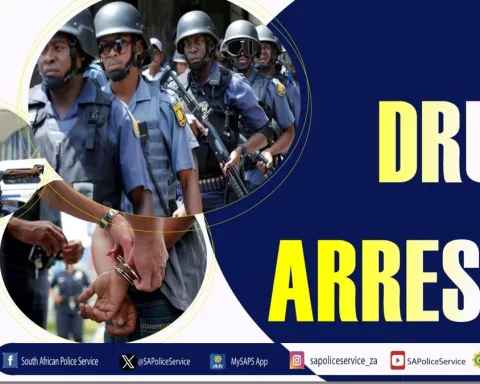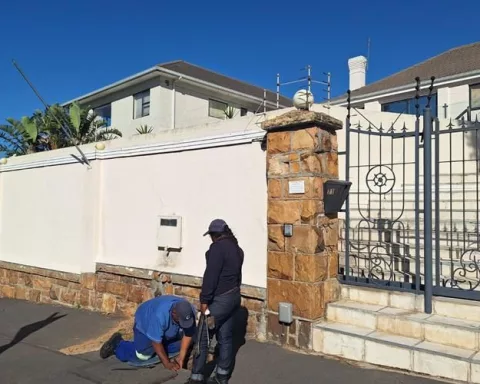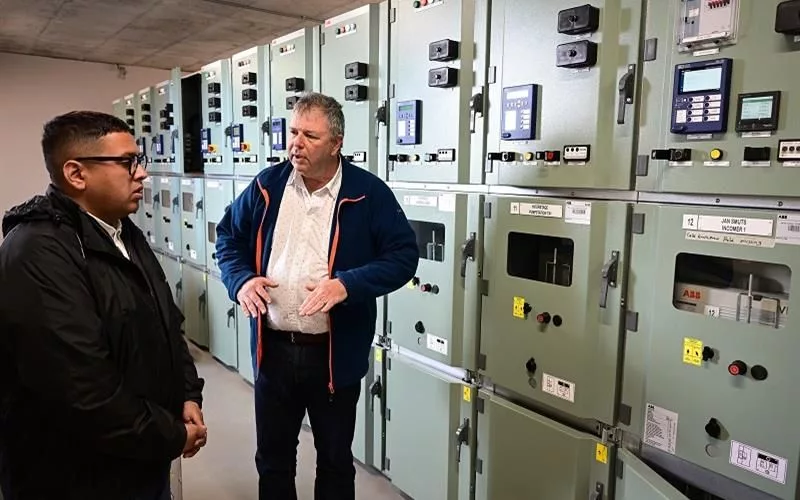The Cape Peninsula Baboon Management Joint Task Team (CPBMJTT) has unveiled a groundbreaking plan to manage the area’s baboon population, including the establishment of the Cape Peninsula Baboon Advisory Group (CPBAG). The CPBAG will advise and facilitate the application of the Cape Peninsula Baboon Strategic Management Plan (CPBSMP) at a local level, ensuring continuous and productive interaction among varying constituencies and building strategic alliances with stakeholders. The objective is to maintain a sustainable Urban Baboon Program that includes local communities, operationalizes the Baboon Strategic Management Plan, and seamlessly transitions into the subsequent phase.
What is the Cape Peninsula Baboon Advisory Group (CPBAG)?
The Cape Peninsula Baboon Advisory Group (CPBAG) is a novel advisory board established by the Cape Peninsula Baboon Management Joint Task Team (CPBMJTT). It consists of representatives from local communities, academic and research institutions, and organizations directly involved in baboon management. Its objective is to advise and facilitate the application of the Cape Peninsula Baboon Strategic Management Plan (CPBSMP) at a local level, ensuring continuous and productive interaction among varying constituencies and building strategic alliances with stakeholders.
The Unveiling of a Groundbreaking Plan
In a significant revelation that reverberates across the leafy expanses and rugged summits of the Cape Peninsula, the Cape Peninsula Baboon Management Joint Task Team (CPBMJTT) has disclosed a groundbreaking scheme to manage the area’s baboon population. This bold endeavor entails the establishment of the Cape Peninsula Baboon Advisory Group (CPBAG), with the hopeful inauguration set for the forthcoming month. This move symbolizes a pivotal moment in the dynamic between humans, nature, and the baboon society residing on the Cape Peninsula.
CPBMJTT, an alliance comprising SANParks, CapeNature, and the City of Cape Town, has been relentlessly devising tactics to lessen human-baboon conflicts while promoting cohabitation. The team has consistently engaged with communities impacted by baboons, soliciting their opinions on the Cape Peninsula Baboon Strategic Management Plan (CPBSMP), and crafting location-specific solutions in collaboration with local communities.
Changing Hangs Amid Contract Expiry
The suggested alterations in the administration of the urban baboon population are a response to the impending termination of the contract with NCC Environmental Services at the conclusion of this year. For years, NCC has offered indispensable services in managing the Urban Baboon Programme, deploying baboon rangers, and implementing strategies to restrict baboon troops to their natural habitats, preventing them from venturing into urban territories.
In anticipation of the cessation of the current Urban Baboon Programme, an interim solution will come into effect starting from 1 January 2025. As the existing programme draws to a close at the end of November, a temporary solution will also be introduced to cater to the December period.
The CPBMJTT is meticulously examining options for the future, which might comprise a grant-in-aid with a non-profit entity or the establishment of a special purpose vehicle to facilitate the delivery of location-based solutions. The intent behind these possible directives is to maintain a sustainable Urban Baboon Programme that includes local communities, operationalizes the Baboon Strategic Management Plan, and seamlessly transitions into the subsequent phase.
Advisory group formation and its Role
A notable aspect of the impending transition is the establishment of the Cape Peninsula Baboon Advisory Group (CPBAG). Over 120 nomination forms for representatives to serve on this novel advisory board have been received by the CPBMJTT. The objective is to unite representatives from local communities, academic and research institutions, and organizations directly involved in baboon management, thereby nurturing a spirit of mutual responsibility and cooperation.
The CPBAG is tasked with advising the CPBMJTT on realizing the outcomes delineated in the CPBSMP. They will facilitate its application at a local level, ensure continuous and productive interaction among varying constituencies, and aid in building strategic alliances with stakeholders.
Population Census and Future Projections
To provide a scientific basis for these management strategies, an annual tally of the Chacma baboon population is taken. The most recent census concluded not long ago, furnishing a comprehensive examination of the changes in the baboon population from July 2023 to June 2024. This crucial information will be considerably influential in directing the strategic initiatives of the CPBAG and the CPBMJTT.
The forthcoming transition symbolizes a beacon of optimism for a sustainable and synergistic coexistence between the inhabitants of the Cape Peninsula and the baboon community. This undertaking, conducted under the vigilant supervision of the CPBMJTT and the soon-to-be-constituted CPBAG, attests to the dedication to harmonize urban progression with environmental conservation. This is a transformative era for the Cape Peninsula, with the echoes of change resonating through the terrain, heralding a fresh epoch of peaceful human-baboon cohabitation.
What is the Cape Peninsula Baboon Strategic Management Plan (CPBSMP)?
The Cape Peninsula Baboon Strategic Management Plan (CPBSMP) is a comprehensive plan developed by the Cape Peninsula Baboon Management Joint Task Team (CPBMJTT) to manage the baboon population in the area. It outlines strategies and tactics to reduce human-baboon conflicts while promoting cohabitation. The plan is applied at a local level with location-specific solutions crafted in collaboration with local communities.
Why is the Urban Baboon Programme being changed?
The Urban Baboon Programme is being changed due to the impending termination of the contract with NCC Environmental Services at the end of this year. An interim solution will be implemented starting from 1 January 2025, and the team is examining options for the future, such as a grant-in-aid with a non-profit entity or the establishment of a special purpose vehicle to facilitate the delivery of location-based solutions.
How will the Cape Peninsula Baboon Advisory Group (CPBAG) help manage the baboon population?
The Cape Peninsula Baboon Advisory Group (CPBAG) will unite representatives from local communities, academic and research institutions, and organizations directly involved in baboon management, nurturing a spirit of mutual responsibility and cooperation. The CPBAG will advise and facilitate the application of the Cape Peninsula Baboon Strategic Management Plan (CPBSMP) at a local level, ensuring continuous and productive interaction among varying constituencies, and building strategic alliances with stakeholders.
How often is the baboon population census taken?
To provide a scientific basis for management strategies, an annual tally of the Chacma baboon population is taken. The most recent census concluded recently and provides crucial information to direct the strategic initiatives of the CPBAG and the CPBMJTT.
What is the objective of the Cape Peninsula Baboon Management Joint Task Team (CPBMJTT)?
The Cape Peninsula Baboon Management Joint Task Team (CPBMJTT) is an alliance comprising SANParks, CapeNature, and the City of Cape Town. Its objective is to devise tactics to lessen human-baboon conflicts while promoting cohabitation. The team consistently engages with communities impacted by baboons, soliciting their opinions on the Cape Peninsula Baboon Strategic Management Plan (CPBSMP) and crafting location-specific solutions in collaboration with local communities.
What is the vision of the Cape Peninsula Baboon Management Joint Task Team (CPBMJTT)?
The Cape Peninsula Baboon Management Joint Task Team (CPBMJTT) envisions a sustainable Urban Baboon Program that includes local communities, operationalizes the Baboon Strategic Management Plan, and seamlessly transitions into the subsequent phase. The team is dedicated to harmonizing urban progression with environmental conservation, ensuring peaceful human-baboon cohabitation.












